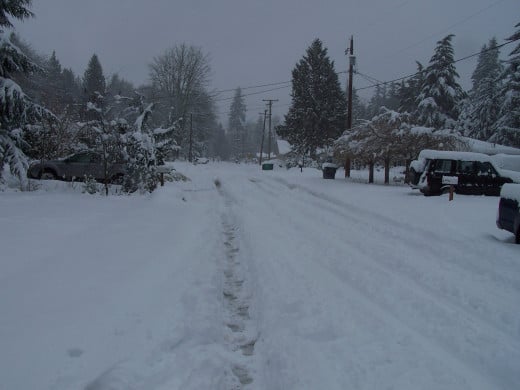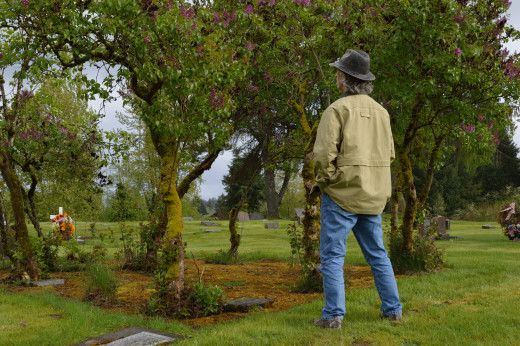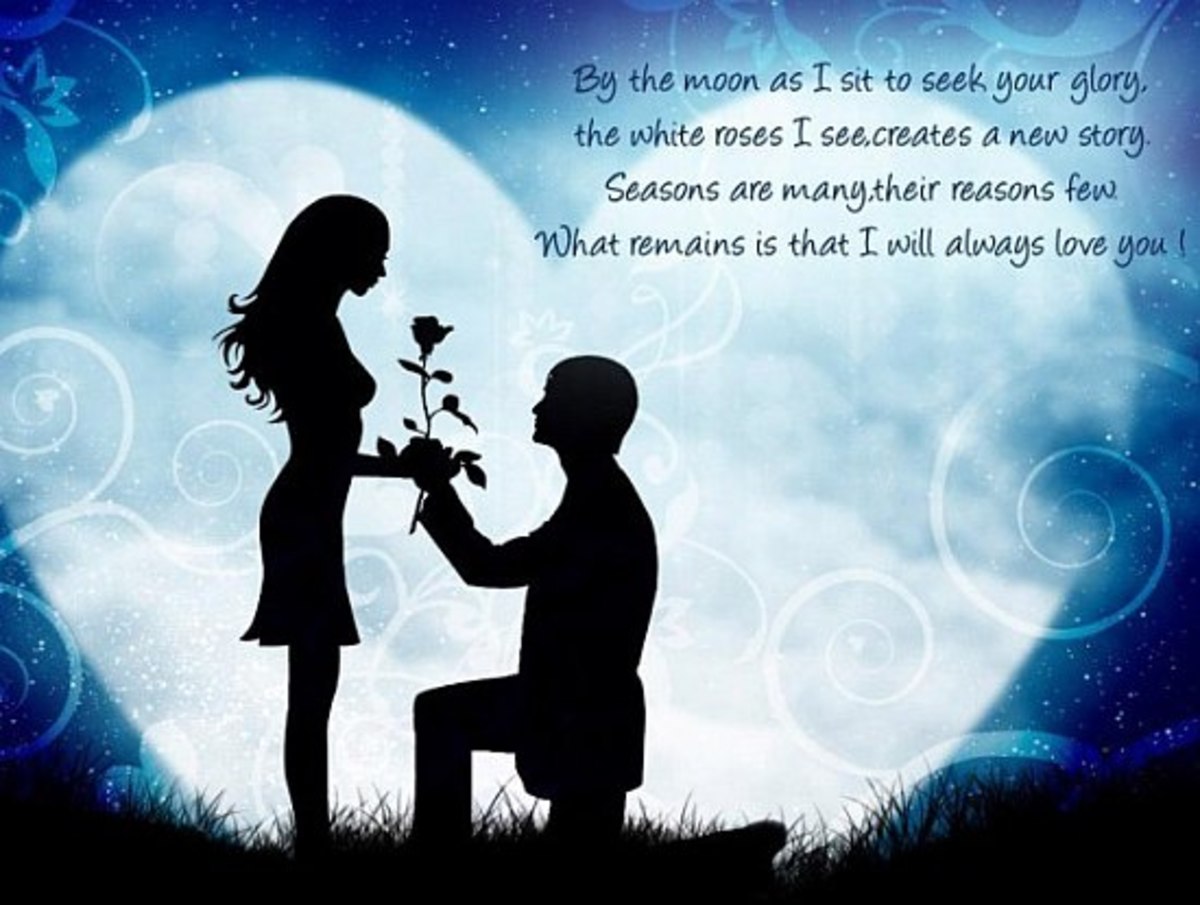How to Add a Spark to Your Story
A Few Words of Explanation
Last week I wrote an article about how writers can write about locations they have never visited. With the aid of the internet and our imaginations, it is quite possible to transport our readers to a town, and make that town come alive, even though we have never stepped foot on that location.
As an example, I wrote the introduction of a short story. Let me give you the opening paragraphs and then we’ll move forward with this lesson.
“He stepped off the bus at the Greyhound Station and set his eyes, for the first time, upon Franklin, Indiana. He was a southern California boy, blond hair, blue eyes, and dimples to die for. He was raised with palm trees and the smell of the ocean, as comfortable surfing as walking, but nowhere in Franklin would he find the golden beaches of his past. This was farming country, and the golden beaches were replaced by green fields and amber waves of grain.”
Later on in the intro, I told my readers that my main character was looking for work, and if he didn’t find it in Franklin he would be moving on soon. That is where I left everyone, and that is where this lesson continues. You can see the entire introduction by clicking on the insert to the right.
At this moment, all I have is a very short story, but what if I wanted to expand it and make it a novel? How can I take this opening scene and give it wings? How do I propel a very innocent opening scene through 100,000 more words?
We do this by adding sparks to the story. A spark is an event that challenges the main character and forces him to react. The average novel is about 100,000 words in length and again, on average, that means I’ll need a spark every 25,000 words or so.
Rather than ramble on about it, allow me, if you will, to teach by example. What follows is the first spark that will take my character on an adventure. The story picks up with my main character leaving a café, walking down the main street of Franklin, Indiana, in search of work.

You can find the introduction to this story here
- How To Write a Scene About a Place You Have Never Visited
Creative writers do not need to have visited a place to write about it. Use your imagination and the internet and you are all set to create magic.
The First Spark
The heat shimmered on the roadway as he trudged on. Perspiration dripped from his brow, and his blond, curly locks were soon damp and hung limp on his shoulders. A gentle breeze blew from the north and tall cumulus clouds dimpled the sky.
He covered the mile slowly, his strong gait hampered by the elements, and just when he was about to decide that Frankin held no interest for him, he came upon the Grange the waitress had mentioned. The parking lot was filled with Ford pickups and small tractors, and men in checkered shirts and ball caps stood in small groups discussing life, crops, prices and, of course, the weather. He nodded to them as he passed by and climbed the steps into the main office.
Behind the desk stood a tall drink of water with broad shoulders and a belly to match. He was busy writing in a ledger as the stranger approached.
“What can I do for ya?”
The visitor to Franklin figured he must look quite the sight, sweat-stained and dusty, like something the cat dragged in. There was no chance of getting hired, he figured, but he was here now so what the hell.
“I’m looking for work. The waitress in town suggested I check at the Grange to see if any farmers needed a hand.”
The big man put down his pen and reached out a hand. “My name is Bruce Fisher, and I’m the manager of this Grange. I didn’t catch your name, son.”
“I’m sorry, Mister. I plumb forgot to give it. I’m Cody Willis, from Malibu, California. I just got into town and, like I said, I’m looking for a job.”
As Cody spoke to the manager, he took note of his surroundings. Behind Fisher was a desk, and at that desk sat a matronly sort with beehive hair going seriously gray. She was carrying an extra fifty pounds and didn’t look too happy about it. She looked at Cody, closed a magazine she had been reading, hefted her extra weight up and left the room through a side door. Through the door glass she could be seen picking up the telephone and dialing a number.
“Well, Cody Willis, I don’t know of anything right now, but check back tomorrow and maybe something will have come up. You might try the Toyota plant across the road. I heard they might be hiring.”
Cody thanked the man and retraced his steps out the front door and back to the oven outside. As he walked across the parking lot a police car entered in a hurry and came to a stop ten feet from him. The driver and passenger doors flew open and two burly cops exited with guns drawn.
“Down on the ground, now!
It’s like being back in California, Cody thought. Too many times he had seen a similar situation back home. Gangbangers, druggies, pickpockets and shoplifters, spread out on the ground, arms yanked behind them, wrists cuffed. He never thought he’d see it in Frankly, Indiana, and he certainly didn’t expect to be the object of so much negative attention. He complied and sprawled on the pavement.
“What did I do, officer?”
“There was a young woman murdered three blocks from here. You match the description of a suspect seen fleeing the murder scene. You have the right to remain silent. Anything you say can be used against you in a court of law. You have the right to an attorney……..”

And We Are off and Running
The first spark has been provided, and that spark, the arrest, will propel the story for the next 25,000 words. When that spark has died it will be time to add a new one, and then another, and another, until my target total of 100,000 words has been reached.
And that’s all there is to it, he said with tongue firmly planted in cheek.
The good news is it gets easier with practice. The bad news is it’s never really easy. Great writers make it look easy, but even the greats struggle with storyline and pace. Even the greats will hit mental roadblocks, and watch as the spark dwindles and threatens to disappear.
If writing were easy everyone would do it and do it well.

Various Schools of Thought
There are writers who will outline a novel, and the sparks are known before they ever sit down to write that first page. I’m not one of those writers. I let my characters tell the story, and my sparks generally come from my characters and from my own personal muse. I wait until they all whisper in my ear and direct me to the next spark. I don’t know of any other way to describe the process.
I mentioned earlier that there should be a spark every 25,000 words. Is that etched in stone? No way, but what is etched in stone is the need for sparks throughout the book. Very few novels can flow properly without fuel of some sort. It is the writer’s job to provide that fuel.
I hope that helps you as you prepare for the adventure of novel-writing. As always, if you are still confused, or need further explanation, you can contact me at your convenience.
Happy Writing!
2015 William D. Holland (aka billybuc)
“Helping writers to spread their wings and fly.”








